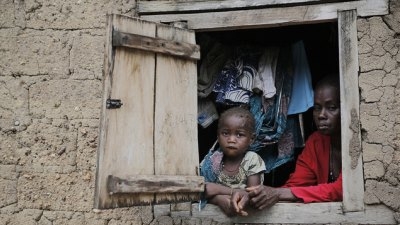The Ebola epidemic continues to cripple the economies of Liberia, Sierra Leone, and Guinea. The crisis is resulting in flat or negative income growth and creating large fiscal needs in all three countries, as they work to eradicate the virus.
This update presents the World Bank’s most recent analysis of the economic effects of the Ebola epidemic on the three countries. All three had been growing rapidly in recent years, and into the first half of 2014. But GDP growth estimates for 2014 have been revised sharply downward since pre-crisis estimates. Projected 2014 growth in Liberia is now 2.2 percent (versus 5.9 percent before the crisis and 2.5 percent in October). Projected 2014 growth in Sierra Leone is now 4.0 percent (versus 11.3 percent before the crisis and 8.0 percent in October). Projected 2014 growth in Guinea is now 0.5 percent (versus 4.5 percent before the crisis and 2.4 percent in October).
As the epidemic continues, these economies will face a difficult year in 2015, as second-round effects kick in and investor aversion takes a further toll. 2015 growth estimates are 3.0 percent in Liberia, -2.0 percent in Sierra Leone, and -0.2 percent in Guinea, down from pre-Ebola estimates of 6.8 percent, 8.9 percent, and 4.3 percent respectively. In Sierra Leone and Guinea these growth forecasts are lower than our October estimates (7.7 percent for Sierra Leone; 2.0 percent for Guinea). In Liberia, where the epidemic may be abating and where there are some signs of economic activity picking up, the 2015 estimate is an increase on October’s (1.0 percent). These projections imply forgone income across the three countries in 2014–15 of well over $2 billion (over $250 million for Liberia, about $1.3 billion for Sierra Leone, about $800 million for Guinea).
Combining the effects on revenue and spending with cuts made to public investment to finance the response, the total fiscal impact is well over half a billion dollars in 2014 alone. Liberia has been hardest hit fiscally. Relative to pre-Ebola forecasts, revenues are down $86 million while public spending has increased $62 million, a combined impact of more than 6 percent of GDP. In Sierra Leone, revenues are down $85 million while spending has increased $43 million, a combined impact of more than 2.5 percent of GDP. In Guinea, revenues are down $93 million while spending has increased $106 million, a combined impact of more than 3 percent of GDP. Although the resulting fiscal deficits in the three countries have so far been financed by inflows from development partners, governments have also cut public investments by more than $160 million across the three countries, damaging future growth prospects.
The World Bank’s October report on the economic impact of Ebola (released at the 2014 Annual Meetings of the IMF and the World Bank) found that if the epidemic continues in the three worst-affected countries and spreads to neighboring countries, the two-year regional financial impact could range from a “low Ebola” estimate of $3.8 billion to a “high Ebola” estimate of $32.6 billion. These scale estimates of potential impact remain valid: the epidemic is not yet under control. Containment, combined with a full-fledged financial recovery effort to restart business activity and bring back investors, are now both therefore urgently needed for the region to improve on the downbeat forecasts in this update.
